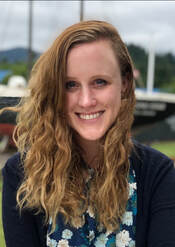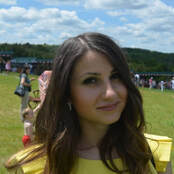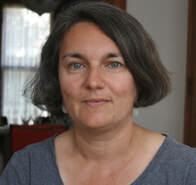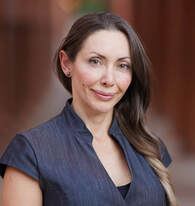Spring 2024 webinars and roundtables
|
Contact us
Maria Khotimsky khotimsk at mit.edu Olga Klimova, Co-chair vok1 at pitt.edu Irina Kogel ikogel at bu.edu |
Susan Kresin kresin at humnet.ucla.edu Lee Roby, Co-chair eroby at friendsbalt.org Alexandra Shapiro aeshapiro at uga.edu |
|
Roundtable: Diverse Voices From the Field
Friday, May 10, 2024, 5:30-7:00 EST Colleagues from countries other than Russia will each present a Russian-language teaching activity or resources offering an insider’s view, followed by a Q&A and discussion. The framing idea is to offer models of well-grounded teaching activities for instructors of Russian with less in-country familiarity or experience. Roundtable participants:
For questions, email Olga Klimova at vok1 at pitt.edu or Lee Roby at eroby at friendsbalt.org |
|
Roundtable: Student Study Abroad Experiences After 2020
Thursday, April 25, 2024, 5:30-7:00 EST In the wake of the Covid pandemic and Russia’s full-scale invasion of Ukraine, the study abroad landscape for Russian has been radically altered. Please join us for a roundtable in which a diverse group of high school, undergraduate, and graduate students will share their experiences of studying Russian abroad after 2020. Roundtable participants’ comments will be prompted by the following questions:
Roundtable participants: Caroline Andrews, Friends School of Baltimore NSLI-Y program in Kazakhstan (summer 2023) Friends School's SRAS Spring Break Program in Kyrgyzstan (spring 2024) Katrina Brazhnikov, Bryn Mawr College CLS program in Kyrgyzstan (summer 2022) Russian Flagship Overseas Capstone Program in Kazakhstan (2023-2024) Sasha Hase, UNC-Chapel Hill University of Georgia, Immersion in the Russian Language, Culture, and Communities in the Baltics, Riga, Latvia (summer 2023) Joseph Matveyenko, Research Assistant, RAND Corporation Russian Overseas Flagship Program in Kyrgyzstan and Kazakhstan (2021-2022) Madelyn Scarlett, Yale University American Councils’ RLASP program in Yerevan, Armenia (Spring 2024) Maya Williams, Friends School of Baltimore University of Wisconsin’s Pushkin Summer Institute Abroad NSLI-Y program in Daugavpils, Latvia (summer 2023) Friends School's SRAS Spring Break Program in Kyrgyzstan (spring 2024) |
|
The Use of Generative AI in the Russian Language Classroom
Thursday, March 14, 5:30-7:00 EST This webinar will outline strategies and best practices for incorporating generative AI into the Russian language classroom. Presenters will share resources and activities that draw on the affordances of AI to enhance students’ classroom experience. They will also consider the efficacy of using AI chatbots to provide students with task-based conversation practice outside the classroom. The presentation will include samples of student work alongside students’ reflections on their experience using AI to complete Russian assignments. In addition to exploring the benefits of incorporating generative AI into language instruction, presenters will discuss potential risks and drawbacks of AI usage, as well as tips for encouraging students to engage responsibly, ethically, and effectively with AI as they progress in their language learning. Specific topics to be covered include prompt engineering, AI as a tool for providing feedback and assessment, the ethics of AI usage, and the impact of AI on students’ experience and perceptions of language learning. Kit Pribble Kit Pribble is an Assistant Professor of Russian at Wake Forest University. Her areas of research are second language acquisition with an emphasis on digital learning technologies, as well as the development of Romantic prose forms in Russia in the 1830s and 40s. Dr. Pribble has published and presented widely on topics within 19th-century Russian literature, Romanticism, and L2 pedagogy, including projects on using Slavic folklore and digital social reading in the L2 classroom. She teaches Russian at the elementary, intermediate, and advanced levels alongside courses on literature and culture. Doina Grecu Doina Grecu is a PhD candidate studying TESOL and World Language Education at the University of Georgia. Her research interests focus on teacher language ideologies and their influence on classroom practices, as well as the decolonization of the Russian as a Foreign Language classroom. She is currently teaching Russian at the intermediate level and has previously worked with students at the elementary, intermediate and advanced levels as part of the Russian Flagship Program at UGA. An Interdisciplinary Partnership: Teaching Russian during the War through Songs and Visual Arts Friday, February 23, 5:30-7:00 EST This webinar will outline the methodology, share resources, and present pedagogical strategies for integrating into Russian language instruction products of Russian popular culture created in response to Russia’s full-scale invasion of Ukraine. Through the analysis of anti-war visual arts and propaganda-serving, pro-war shanson music, presenters aim to equip language instructors with critical lenses and explicit strategies to teach media literacy. The objective is to expand students’ cultural perspectives by heightening awareness of wartime culture, developing their ability to interpret images and song lyrics, and sparking interest in civic and social justice. Presenters will share activities designed to enhance language competencies through scaffolded assignments, which allow students to interpret popular culture in the classroom setting while exploring anonymous anti-war street graffiti, stickers, street art, conceptual art, installations, song lyrics, and videos in a variety of formats. Julia Denne Julia Kriventsova Denne is an independent instructor and owner of the “By the Onion Sea” program (www.bytheonionsea.com). She teaches Russian classes for both high-school students, including heritage and bilingual students, and adults in the Chicago area and online. She has also been conducting adult seminars on Russian and world literature, art, history, and culture at the Newberry Library in Chicago for over 15 years. Anastasia Gordienko Anastasia Gordienko is Assistant Professor of Russian and Slavic Studies at the University of Arizona. Her interests lie in the intersection of Russian and Ukrainian history, culture, and identity. Her monograph Outlaw Music in Russia: The Rise of an Unlikely Genre (The University of Wisconsin Press, 2023) explores a paradoxical quid pro quo synergy among Russian criminal music, the shanson, and Putin’s politics. Gordienko has taught a variety of graduate and undergraduate courses at UA, covering subjects such as Ukraine, fairy tales, criminal culture, and the Russian language. |
Recent webinars (Fall 2023)
Join us for other webinars and teachers’ lounges. All events are free and open to ACTR members (you can get or renew your membership here). The recording of webinars and teacher's lounges will be emailed to all registered participants.
November 3, 2023
5:30 PM EST
Information Session on American Councils' Russian Study Abroad Programs
Free and open to the public.
The session will provide an overview and a Q&A session about Russian language programs administered by American Councils for International Education.
November 3, 2023
5:30 PM EST
Information Session on American Councils' Russian Study Abroad Programs
Free and open to the public.
The session will provide an overview and a Q&A session about Russian language programs administered by American Councils for International Education.
- Vladka Shikova will present on Russian study abroad opportunities and available federal scholarships for U.S. students. She will also provide an update on an overseas, professional development program for U.S.-based teachers of Russian.
- Nellie Manis will present on the Critical Language Scholarship Program's Russian language program. This U.S. Department of State-funded program is open to college and graduate students eager to deepen their cultural and linguistic expertise in an immersive environment.
- Angela MacDougall will present on the National Security Language Initiative for Youth's Russian language program. This U.S. Department of State-funded program is open to high school students looking to gain experience in an overseas environment and expand their knowledge of Russian language.
Recent webinars (Spring 2023)
April 7, 2023
5:30 - 7:00 pm EST
Webinar "Your Feedback is Very Important to Us! Feedback and Assessment in the Second Language Classroom"
Assessment is a topic of much scholarly debate with conference panels, colloquia and academic journals devoted to the subject matter. At the practical level – for every language department, curriculum team, and individual teachers and learners – assessment can also be a source of confusion and anxiety. This webinar will discuss how informative assessment practices and actionable feedback strategies may lead language learners towards reasonable improvement in language proficiency and self-efficacy. Based on the review of research literature, we will review types of assessments and effective feedback and workshop specific strategies of providing actionable, sustainable and timely feedback in various instructional contexts.
Olesya Kisselev is an assistant professor in the Department of Bicultural-Bilingual Studies, College of Education and Human Development at The University of Texas at San Antonio. Dr. Kisselev’s research expertise lies in the areas of Second and Heritage language acquisition, Second/Heritage language pedagogy, and teacher development. She has published and presented widely on these topics.
Dr. Kisselev has trained dozens of teachers of Russian as a Foreign/Heritage language through a program funded by the STARTALK grant. She continues to contribute to the field of teaching Russian; her most recent work include the textbook Родная Речь: An Introductory Course for Heritage Learners of Russian and a learning platform Digital Russian: Russian for Heritage Learners.
March 10, 2023
5:30 - 7:00 pm EST
Webinar “Rehumanizing the Humanities: Ungrading in the Language Classroom”
Research has shown that grades are not always equitable. Grades can be harmful to student mental health, and often grades are not the best indicator of student learning. So then why do we grade? Can meaningful assessment be done without tying results to grades? Dr. Evgeny Dengub believes it can! In this presentation, Dengub will define ungrading philosophy which has at its core a desire to rehumanize language classes and put student learning at the center by decentering grades. He will discuss ungraded practices and assessment tools that have proven successful in his language classrooms. He will then discuss program-wide implications of the ungraded classroom.
During this webinar participants will: a) reflect upon their own grading and assessment practices; b) discover what ‘ungrading’ is and how it is implemented in an actual classroom/course; c) identify ungraded changes they can implement in their own class; d) learn how to change their syllabi to incorporate the upgrading approach.
Evgeny Dengub is a Professor (Teaching) of Russian and Director of the Basic Language Program in the Department of Slavic Languages and Literatures at the University of Southern California where he also directs the Center for Languages and Cultures. He is the co-author of three Russian language textbooks: Etazhi: 2nd year Russian Language and Culture (2021, Georgetown UP), Panorama: Intermediate Russian Language and Culture (2017, Georgetown UP), and Russian for Advanced Students (2013, Dunwoody Press). He has served as a director of the Institute for teachers of Russian at Middlebury College Russian School funded by the STARTALK grant. He has been recognized by awards for scholarship (AATSEEL, MLA)
and service (ACTR).
February, 10: Meeting the Challenge of Teaching Second Languages to Students with Learning Disabilities
5:30 - 7:00 pm EST
This webinar will look at the cognitive components of second-language learning such as attention, memory and processing speed, that are likely to cause problems for students with learning disabilities. It includes simulations designed to give instructors insights and empathy for students’ challenges. The presenter will share recommendations for effective second language instruction based on research, literature review, and nearly 40 years of classroom practice developed in Landmark College’s successful Foreign Language programs.
Linda Hecker, M.Ed., Professor Emerita, was a founding faculty member of Landmark College, established in 1985 for students who learn differently, including those with learning disabilities, such as Attention Deficit Disorder, and Autism Spectrum Disorder. She served in multiple roles: directing tutorial and teacher training programs; teaching English, study skills, and music classes; and as an academic advisor and dean. She was appointed to the Landmark College Institute for Research and Training in 2001, where she led professional learning initiatives for educators around the world. Ms. Hecker is the author of numerous articles and book chapters, including work on multisensory learning and supportive technology. She received her B.A. from Brandeis University and her M. Ed from the University of Hartford.
Jan 13, 2023: Diverse Voices from the Field, part II
5:30 - 7:00 pm EST
In the first Teachers' Lounge of the spring semester 2023, we will continue hearing from colleagues with diverse backgrounds in our field. We will hear from Dr. Jose Vergara, Dr. David Parker, and Dr. Raquel Green as they explore the following questions:
5:30 - 7:00 pm EST
Webinar "Your Feedback is Very Important to Us! Feedback and Assessment in the Second Language Classroom"
Assessment is a topic of much scholarly debate with conference panels, colloquia and academic journals devoted to the subject matter. At the practical level – for every language department, curriculum team, and individual teachers and learners – assessment can also be a source of confusion and anxiety. This webinar will discuss how informative assessment practices and actionable feedback strategies may lead language learners towards reasonable improvement in language proficiency and self-efficacy. Based on the review of research literature, we will review types of assessments and effective feedback and workshop specific strategies of providing actionable, sustainable and timely feedback in various instructional contexts.
Olesya Kisselev is an assistant professor in the Department of Bicultural-Bilingual Studies, College of Education and Human Development at The University of Texas at San Antonio. Dr. Kisselev’s research expertise lies in the areas of Second and Heritage language acquisition, Second/Heritage language pedagogy, and teacher development. She has published and presented widely on these topics.
Dr. Kisselev has trained dozens of teachers of Russian as a Foreign/Heritage language through a program funded by the STARTALK grant. She continues to contribute to the field of teaching Russian; her most recent work include the textbook Родная Речь: An Introductory Course for Heritage Learners of Russian and a learning platform Digital Russian: Russian for Heritage Learners.
March 10, 2023
5:30 - 7:00 pm EST
Webinar “Rehumanizing the Humanities: Ungrading in the Language Classroom”
Research has shown that grades are not always equitable. Grades can be harmful to student mental health, and often grades are not the best indicator of student learning. So then why do we grade? Can meaningful assessment be done without tying results to grades? Dr. Evgeny Dengub believes it can! In this presentation, Dengub will define ungrading philosophy which has at its core a desire to rehumanize language classes and put student learning at the center by decentering grades. He will discuss ungraded practices and assessment tools that have proven successful in his language classrooms. He will then discuss program-wide implications of the ungraded classroom.
During this webinar participants will: a) reflect upon their own grading and assessment practices; b) discover what ‘ungrading’ is and how it is implemented in an actual classroom/course; c) identify ungraded changes they can implement in their own class; d) learn how to change their syllabi to incorporate the upgrading approach.
Evgeny Dengub is a Professor (Teaching) of Russian and Director of the Basic Language Program in the Department of Slavic Languages and Literatures at the University of Southern California where he also directs the Center for Languages and Cultures. He is the co-author of three Russian language textbooks: Etazhi: 2nd year Russian Language and Culture (2021, Georgetown UP), Panorama: Intermediate Russian Language and Culture (2017, Georgetown UP), and Russian for Advanced Students (2013, Dunwoody Press). He has served as a director of the Institute for teachers of Russian at Middlebury College Russian School funded by the STARTALK grant. He has been recognized by awards for scholarship (AATSEEL, MLA)
and service (ACTR).
February, 10: Meeting the Challenge of Teaching Second Languages to Students with Learning Disabilities
5:30 - 7:00 pm EST
This webinar will look at the cognitive components of second-language learning such as attention, memory and processing speed, that are likely to cause problems for students with learning disabilities. It includes simulations designed to give instructors insights and empathy for students’ challenges. The presenter will share recommendations for effective second language instruction based on research, literature review, and nearly 40 years of classroom practice developed in Landmark College’s successful Foreign Language programs.
Linda Hecker, M.Ed., Professor Emerita, was a founding faculty member of Landmark College, established in 1985 for students who learn differently, including those with learning disabilities, such as Attention Deficit Disorder, and Autism Spectrum Disorder. She served in multiple roles: directing tutorial and teacher training programs; teaching English, study skills, and music classes; and as an academic advisor and dean. She was appointed to the Landmark College Institute for Research and Training in 2001, where she led professional learning initiatives for educators around the world. Ms. Hecker is the author of numerous articles and book chapters, including work on multisensory learning and supportive technology. She received her B.A. from Brandeis University and her M. Ed from the University of Hartford.
Jan 13, 2023: Diverse Voices from the Field, part II
5:30 - 7:00 pm EST
In the first Teachers' Lounge of the spring semester 2023, we will continue hearing from colleagues with diverse backgrounds in our field. We will hear from Dr. Jose Vergara, Dr. David Parker, and Dr. Raquel Green as they explore the following questions:
- How did your unique backgrounds and professional experiences impact your learning of the language?
- How did your backgrounds impact your own teaching practices?
- How can these experiences help everyone create more diverse and inclusive Russian language classrooms?
In the 2021-2022 academic year, ACTR partnered with the Robert F. Byrnes Russian and East European Institute, Indiana University, and the Center for Russian, East European, and Eurasian Studies, University of Pittsburgh to cover registration fees for non-members who are K-12 teachers for one webinar of their choice.
February 4, 2022, 5:00 - 6:00 pm EST: Follow-up teachers' lounge on the round table on Standards.
February 25, 2022, 5:00 - 6:30 pm EST: Webinar “Teaching Culture through Film” (by Olga Mesropova and Lynne deBenedette).
March 4, 5:00 - 6:00 p.m. EST: Follow-up teachers' lounge
March 25, 2022, 5:00 - 6:30 pm EST: Webinar "Project-Based Learning in Pre-college and College Russian Language Classroom"
April 1, 5:00 - 6:00 pm EST: Follow-up teachers' lounge
April 22, 2022, 5:00 - 6:30 pm EST: Webinar "Russian Outside of the Classroom: Community-Based Teaching"
February 4, 2022, 5:00 - 6:00 pm EST: Follow-up teachers' lounge on the round table on Standards.
February 25, 2022, 5:00 - 6:30 pm EST: Webinar “Teaching Culture through Film” (by Olga Mesropova and Lynne deBenedette).
March 4, 5:00 - 6:00 p.m. EST: Follow-up teachers' lounge
March 25, 2022, 5:00 - 6:30 pm EST: Webinar "Project-Based Learning in Pre-college and College Russian Language Classroom"
April 1, 5:00 - 6:00 pm EST: Follow-up teachers' lounge
April 22, 2022, 5:00 - 6:30 pm EST: Webinar "Russian Outside of the Classroom: Community-Based Teaching"
Webinar series organizers and hosts:
Irina Dubinina, Brandeis University, idubinin at brandeis.edu
Liz Ewaskio, University of Utah, u0315056 at utah.edu
Olga Klimova (Co-chair), University of Pittsburgh, vok1 at pitt.edu
Irina Kogel, Boston University, ikogel at bu.edu
Susan Kresin, UCLA, kresin at humnet.ucla.edu
Lee Roby (Co-chair), Friends School, eroby at friendsbalt.org
Please contact organizers with questions or suggestions for topics. If you are interested in leading a webinar for ACTR, please let us know.
Irina Dubinina, Brandeis University, idubinin at brandeis.edu
Liz Ewaskio, University of Utah, u0315056 at utah.edu
Olga Klimova (Co-chair), University of Pittsburgh, vok1 at pitt.edu
Irina Kogel, Boston University, ikogel at bu.edu
Susan Kresin, UCLA, kresin at humnet.ucla.edu
Lee Roby (Co-chair), Friends School, eroby at friendsbalt.org
Please contact organizers with questions or suggestions for topics. If you are interested in leading a webinar for ACTR, please let us know.
Past Webinars
ACTR webinars led by leading scholars and teachers of Russian present a unique opportunity for professional development.
Contact Evgeny Dengub ([email protected]) to get a recording of a webinar you are interested in (available for free to all active ACTR members).
Proficiency-Oriented Approach to Teaching Listening ComprehensionDecember 2021
Presenter: Olga Mukhortova, Ph.D., Assistant Professor, Undergraduate Russian School, Russian Department, Defense Language Institute, Foreign Language Center, Monterey
|
Gender-Inclusive Language and Practices for TeachingApril 2021
Presenters: Devin Browne (a teacher of Russian and French), Fredrikh Chernyshev (a trans/queer activist), and Alexander Pershai (a linguist and a DEI researcher)
|
Building Intercultural Competence in a Russian Language ClassMarch 2021
Presenter Katya Nemtchinova (Seattle Pacific University)
|
|
February 2021
by Olga Klimova and Izolda Savenkova
|
ACTR National Conversations
Changes to the Pedagogy at the K-12 LevelJuly 2020
Panelists: Emily Matts Henry, Paavo Husen, Ken Petersen, Katerina Ratushnyuk,
John Rock, Betsy Sandstrom, Jane Shuffelton, Mara Sukholutskaya, Mark Trotter Moderator: Nataliya Ushakova |
ACTR National Conversations
Study Abroad and Flagship Programs and Intensive Summer Programs during COVID-19July 2020
Panelists: Karen Evans-Romaine, Graham Hettlinger, Jason Merrill,
Jeannette Owen, Nana Tsikhelashvili, Irina Walsh, Moderator: Evgeny Dengub |
|
ACTR National Conversations
Changes to the Pedagogy at the Post-Secondary LevelJuly 2020
Panelists: William Comer, Lynne deBenedette, Cynthia Martin, Shannon Spasova, Kristen Welsh
Moderator: Irina Dubinina |
ACTR National Conversations
Inclusivity in the Language ClassroomJuly 2020
Panelists: Lindsay Ceballos, Thomas Garza, Lauren Nelson, Rachel Stauffer
Moderator: Colleen Lucey |
ACTR National Conversations
Co-Curricular Activities and Events; Building Communities of LearnersJuly 2020
Panelists: Evgeny Dengub, Kathleen Evans, Laura Marshall, Lee Roby, Iza Savenkova
Maria Shardakova Moderator: Irina Dubinina |
|
Roundtable on Teaching Languages OnlineMarch 2020
|
The Academic Job Market in Russian Language, Literature, and Culture: Preparation, Pitfalls, and PathwaysFebruary 2020
by Karen Evans-Romaine
|
Unlocking Russian PronunciationSeptember 2019
by Kimberly DiMattia
|
To Blend or Not to Blend: The Case for Hybrid CoursesApril 2019
by Shannon Donnally Spasova
|
Oral History Projects in the Russian-Language Curriculumby Colleen Lucey and Benjamin Rifkin (March 2019)
|
Синтаксис сложного предложения в практике РКИ (продвинутый уровень)by Anna Alsufieva (February 2019)
|
Verbs of Motion: Keep it Simple and Meaningfulby Irina Six (December 2018)
|
Online Resources for Russian Teachersby Evgeny Dengub (November 2018)
|
Упражнения на практику устной речи: мемы, виммельбухи, кубики историйby Yulia Amlinskaya (October 2018)
|
Лакуны в словарях и грамматиках русского языкаby Alexey Shmelev (March 2018)
|
The Movement toward Transformation in Education: What It Offers Russian Language Teachersby Betty Lou Leaver (February 2018)
|
Russian Flagship Practices: Intensive Language Learning for Students of All Majorsby Karen Evans-Romaine (January 2018)
|
The Backwards Flip: Designing Russian Courses for Advanced Proficiencyby Thomas Garza (December 2017)
|
Guided Subtitles in Teaching Russianby Richard Robin (November 2017)
|
Обучение устной речи в условиях современного иноязычного образованияby Valentina Trufanova (May 2017)
|
Guiding principles and practical strategies for teaching mixed classesby Maria Carreira (May 2017)
|
Современный русский язык в интернете и других новых коммуникативных сферахby Максим Кронгауз (March 2017)
|
Approaches to working with heritage learners: learning outcomes and ways to achieve themby Irina Dubinina and Alla Smyslova (March 2017)
|
Heritage Language Curricular Development for Russian Heritage Speakers: Foundations and Rationaleby Olga Kagan (February 2017)
|
Heritage Speakers of Russian: a Linguistic Portraitby Maria Polinsky (February 2017)
|
High School to College Articulation: Building Proficiency and Structural Control at the Pre-College Levelby Lee Roby (January 2017)
|
Moving from Intermediate to Advanced in Russianby Cynthia Martin (December 2016)
|
Striking a Balance: Input, Vocabulary and Grammar in Teaching Russianby William Comer and Lynn deBenedette (November 2016)
|
Contemporary Russian: What do We Teach Our Students?Watch the recording
by Елена Шмелева (March 2016)
|
Proficiency-oriented and Standards-based Assessmentby Benjamin Rifkin (February 2016)
|







